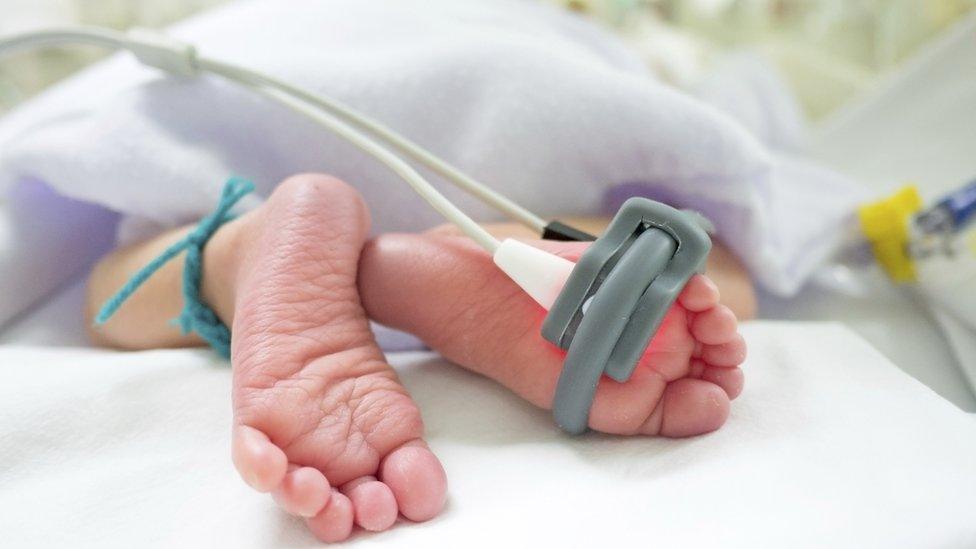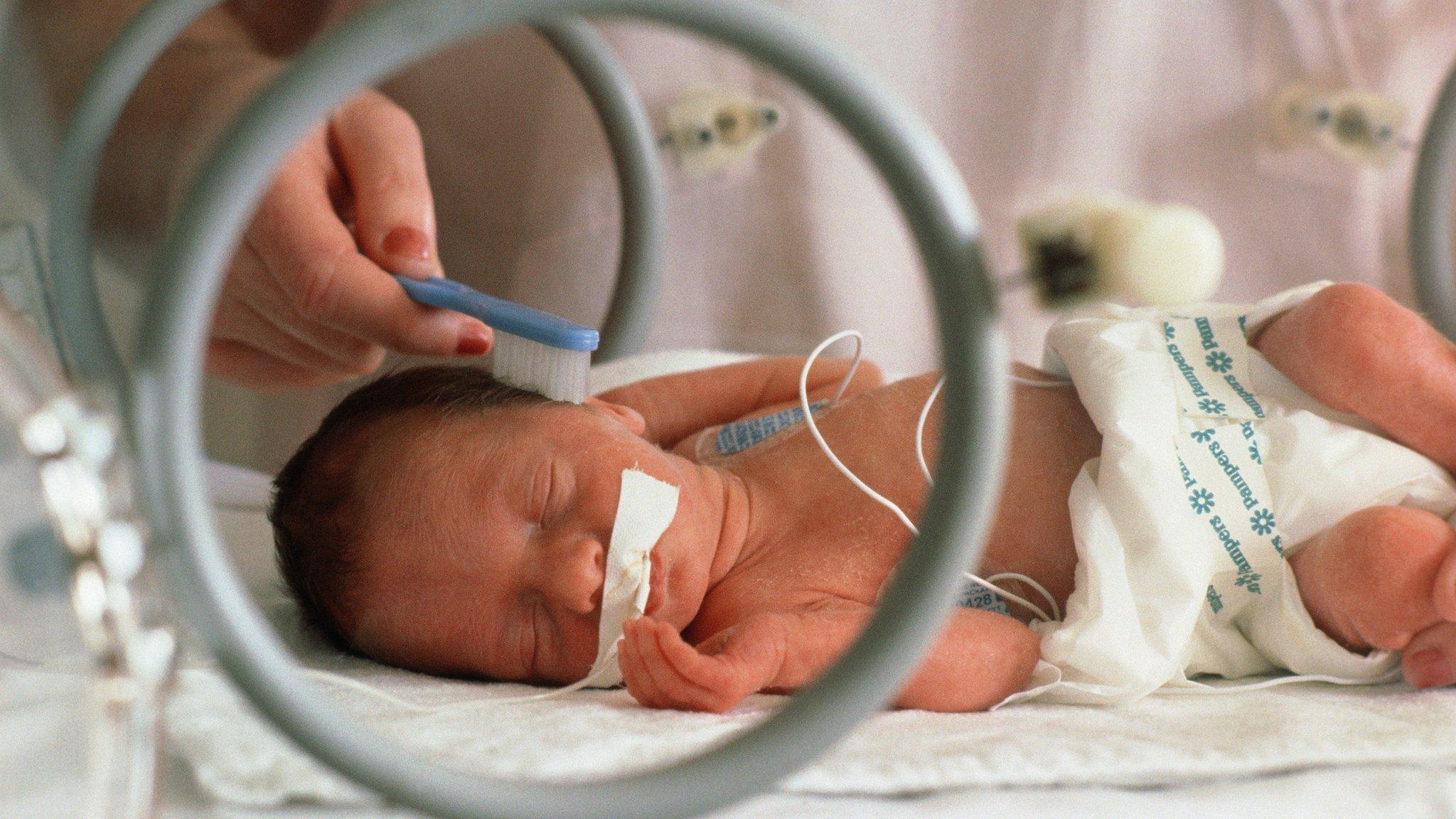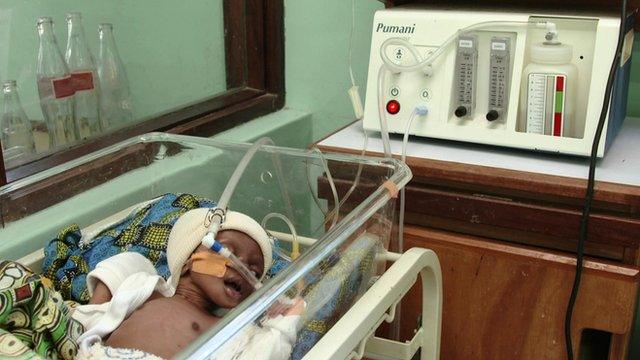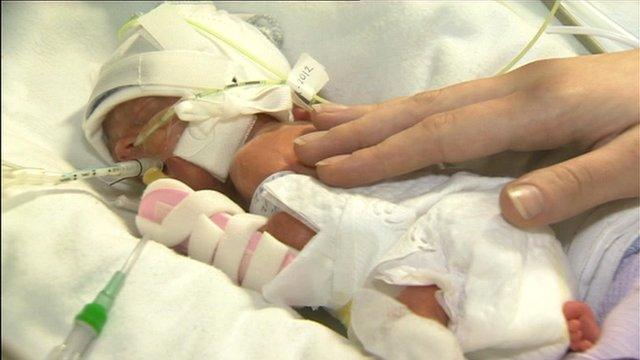Premature baby checks 'missed'
- Published

Babies born early are at higher risk of developmental problems
Premature babies across England and Wales may be missing out on vital health checks designed to spot serious disabilities early on, experts warn.
The report raises "major concerns" that intellectual and other developmental problems may be noticed late, meaning children lose out on specialist care.
NHS England says all babies born more than 10 weeks early should be offered assessments at about two years.
But the study indicates 46% miss these checks or do not have them recorded.
Parental anxiety
The review, published by the Royal College of Paediatrics and Child Health, analysed data from more than 86,000 newborns in England and Wales who required specialist neonatal care in 2014.
Of these, some 3,600 babies were born more than 10 weeks early, putting them at a raised risk of cerebral palsy, hearing impairments, and intellectual disabilities.
NHS England recommends all babies at high risk should have structured neurological and developmental checks at about two years of age, to help spot and treat these issues.
Dr Sam Oddie, who lead the study, said these assessments were crucial, as the earlier problems were picked up, the sooner children could get support and the greater chance of them reaching their full potential.
He said the fact that 46% of babies studied had no checks recorded at age two was a "major concern."
Dr Oddie added: "Without these checks taking place, not only does this create added anxiety for parents about whether their child's developmental milestones are being met, it also adds pressure to the health service as such children will need to begin a new pathway through the NHS."
While he accepted some assessments may simply not have been recorded on the system, he said others would simply have not taken place.
The charity Bliss, which was involved in the report, said it was "extremely worrying" that so many babies were missing checks.
Caroline Davey, chief executive of the charity, added: "Premature babies often have health issues at birth and need close monitoring and specialist care going into childhood to ensure they have the very best quality of life.
"We welcome the recommendation that neonatal units plan for this as part of a baby's overall care."
The report shows improvements in other areas of premature care over recent years - for example the number of checks for serious eye problems in the first few weeks of life have gone up.
Experts say while the majority of premature babies do not go on to develop problems, certain issues - such as intellectual disabilities - can be difficult for non-specialists to pick up early on.
An NHS England spokesperson said: "We expect providers to adhere to existing best practice and guidance on supporting premature babies and their families.
"We continue to work closely with royal medical colleges and others to improve neo-natal services, ensuring every premature or sick baby receives the best possible care."
- Published19 October 2015

- Published21 June 2015

- Published5 December 2012
